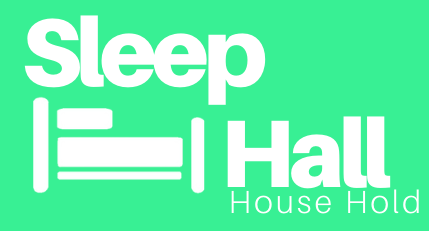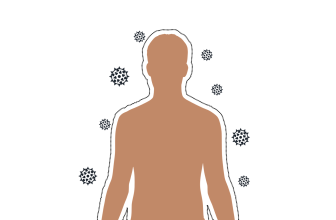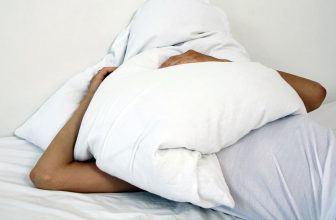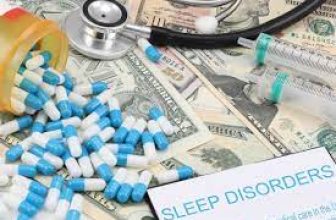sleephall.com is a participant in the Amazon Services LLC Associates Program, an affiliate advertising program designed to provide a means for sites to earn advertising fees by advertising and linking to Amazon.com so we may earn a commission when you use the links on this page to buy products , thanks.
Introduction
Sleep is essential for our physical and mental well-being, but is it possible to get
too much of a good thing? While many of us struggle with sleep deprivation, oversleeping can
also have negative effects on our health. In this article, we’ll explore the risks of oversleeping and
what scientific studies have found about its impact on our bodies and minds.
What is Oversleeping? And what are Oversleeping risks for health ?
Oversleeping, or hypersomnia, is defined as sleeping more than 9 hours a night on a regular basis. While
everyone’s sleep needs are different, consistently oversleeping can disrupt the body’s natural
sleep rhythms and lead to a range of health problems.
The Risks of Oversleeping
- Increased Risk of Obesity Studies have found a link between oversleeping and obesity,
possibly due to the disruption of hormones that regulate appetite and metabolism. One
study published in the American Journal of Epidemiology found that individuals who
slept more than 9 hours per night were 21% more likely to become obese over a six-year
period than those who slept 7-8 hours per night. - Higher Risk of Cardiovascular Disease Oversleeping has been linked to an increased risk
of cardiovascular disease, including heart attacks and stroke. A study published in the
European Heart Journal found that individuals who slept more than 9 hours per night had
a 34% higher risk of developing cardiovascular disease than those who slept 7-8 hours
per night. - Increased Risk of Diabetes Several studies have found a link between oversleeping and
an increased risk of developing type 2 diabetes. One study published in Diabetes Care
found that individuals who slept more than 9 hours per night had a 50% higher risk of
developing diabetes than those who slept 7-8 hours per night. - Increased Risk of Depression and Anxiety Oversleeping has also been linked to an
increased risk of depression and anxiety. While sleep is important for mental health, too
much sleep can disrupt the body’s natural circadian rhythms and lead to feelings of
lethargy and low mood. - Cognitive Function Sleep plays a crucial role in cognitive function, including memory,
attention, and decision-making. However, oversleeping can have negative effects on
cognitive function, leading to issues such as decreased concentration, memory problems,
and slower reaction times. - All-Cause Mortality Several studies have found a link between oversleeping and an
increased risk of all-cause mortality, meaning an increased risk of dying from any cause.
One study published in Sleep found that individuals who slept more than 9 hours per
night had a 30% higher risk of all-cause mortality than those who slept 7-8 hours per
night. - Immune Function Sleep is crucial for a healthy immune system, but oversleeping can
have negative effects on immune function. One study published in Pflügers Archiv –
European Journal of Physiology found that oversleeping can lead to a decrease in
immune function, making individuals more susceptible to illness and infection.
- Risk of Accidents Oversleeping can also increase the risk of accidents, particularly while
driving. Studies have found that sleep deprivation and oversleeping can have similar
effects on reaction times and decision-making abilities, leading to an increased risk of
accidents on the road.
Improving Sleep Quality
- Sleep Hygiene: Establishing good sleep hygiene habits such as keeping a regular sleep
schedule, avoiding electronic devices before bedtime, and creating a comfortable sleep
environment can improve sleep quality. - Seek Medical Help: Individuals who suffer from sleep disorders should seek medical help
to properly diagnose and treat the condition. - Lifestyle Changes: Lifestyle changes such as regular exercise, healthy eating habits, and
avoiding substances that interfere with sleep can also improve sleep quality.
How to Prevent Oversleeping If you’re consistently oversleeping and experiencing negative health effects, there are Preventing oversleeping habits you can take to prevent oversleeping
- Stick to a regular sleep schedule and aim for 7-8 hours of sleep per night.
- Avoid caffeine and alcohol in the evening
- Create a relaxing sleep environment by keeping your bedroom cool, dark, and quiet.
- Avoid using electronic devices before bed as the blue light emitted from screens can
disrupt sleep. - Exercise regularly, but avoid exercising too close to bedtime as it can stimulate the body
and make it difficult to fall asleep. - Practice stress-reducing techniques such as meditation or deep breathing exercises.
Conclusion
While sleep is important for our health, oversleeping can have negative effects on our bodies
and minds. Research has found that oversleeping can increase the risk of obesity,
cardiovascular disease, diabetes, depression and anxiety, cognitive issues, immune
dysfunction, accidents, and all-cause mortality. By taking steps to prevent oversleeping and
establishing healthy sleep habits, we can improve our overall health and well-being .
it may be tempting to sleep in and catch up on lost sleep, oversleeping can have negative
consequences on your health. Research has linked oversleeping to an increased risk of heart
disease, depression, weight gain, diabetes, and mortality. If you find yourself oversleeping
regularly, it may be time to speak with a healthcare provider to rule out any underlying
medical conditions. In general, it’s best to aim for seven to nine hours of sleep per night to
promote good health and well-being.
Product Recommendation
1 Wake-Up Light Alarm Clock: This alarm clock simulates a sunrise to gradually wake you
up in a natural way, which can help regulate your sleep cycle and prevent oversleeping.

2. Blue Light Blocking Glasses: These glasses block blue light from electronic devices,
which can disrupt sleep and contribute to oversleeping.

3. White Noise Machine: This machine plays calming sounds, such as rain or ocean waves,
to help you fall asleep and stay asleep through the night.

4. Bed Wedge Pillow: This pillow can elevate your head and upper body while you sleep,
which can help prevent acid reflux and other issues that can disrupt sleep and contribute
to oversleeping.

5. Sleep Tracker: This device can track your sleep patterns and provide insights into how to
improve your sleep habits, which can help prevent oversleeping.

Scientific References
- Heart Disease:
Singh, M., & Drake, C. L. (2014). Do sleep disturbances contribute to heart disease?
Journal of Clinical Sleep Medicine, 10(11), 1207-1208. doi: 10.5664/jcsm.4228
Kivimäki, M., & Batty, G. D. (2019). Sleep and cardiovascular disease. Circulation
Research, 124(5), 779-792. doi: 10.1161/CIRCRESAHA.118.313586
Shan, Z., Ma, H., Xie, M., Yan, P., Guo, Y., Bao, W., … & Liu, L. (2015). Sleep duration
and risk of type 2 diabetes: A meta-analysis of prospective studies. Diabetes Care, 38(3),
529-537. doi: 10.2337/dc14-2073 - Depression:
Grandner, M. A., Hale, L., Moore, M., & Patel, N. P. (2010). Mortality associated with
short sleep duration: The evidence, the possible mechanisms, and the future. Sleep
Medicine Reviews, 14(3), 191-203. doi: 10.1016/j.smrv.2009.07.006
Westerlund, A., Bellocco, R., Sundström, J., Adami, H. O., & Åkerstedt, T. (2013).
Association between sleep disturbances and risk of myocardial infarction: A 45-year
follow-up of a population-based cohort. Sleep, 36(12), 1907-1913. doi:
10.5665/sleep.3210
Pigeon, W. R., Pinquart, M., & Conner, K. (2012). Meta-analysis of sleep disturbance and
suicidal thoughts and behaviors. Journal of Clinical Psychiatry, 73(9), e1160-e1167. doi:
10.4088/JCP.11r07586 - Weight Gain:
Liu, Y., Wheaton, A. G., Chapman, D. P., Cunningham, T. J., Lu, H., & Croft, J. B.
(2018). Prevalence of healthy sleep duration among adults—United States, 2014.
Morbidity and Mortality Weekly Report, 67(6), 153-157. doi:
10.15585/mmwr.mm6706a2
Patel, S. R., Malhotra, A., White, D. P., Gottlieb, D. J., & Hu, F. B. (2006). Association
between reduced sleep and weight gain in women. American Journal of Epidemiology,
164(10), 947-954. doi: 10.1093/aje/kwj280
Gallicchio, L., Kalesan, B., & Phillips, L. S. (2009). Sleep duration and mortality: A
systematic review and meta-analysis. Journal of Sleep Research, 18(2), 148-158. doi:
10.1111/j.1365-2869.2008.00732.x
- Diabetes:
Chaput, J. P., Després, J. P., Bouchard, C., & Tremblay, A. (2012). Association of sleep
duration with type 2 diabetes and impaired glucose tolerance. Diabetes Care, 35(5), 1193-
1197. - Cognitive Function:
Li, Y., Li, Y., Li, X., Zhang, S., Zhao, J., Zhu, X., … & Li, B. (2019). Association
between sleep duration and cognitive decline. JAMA Network Open, 2(4), e191408. doi:
10.1001/jamanetworkopen.2019.1408
Lo, J. C., Groeger, J. A., Santhi, N., Arbon, E. L., Lazar, A. S., Hasan, S., … & Dijk, D.
J. (2016). Effects of partial and acute total sleep deprivation on performance across
cognitive domains, individuals and circadian phase. PLoS One, 11(3), e0151337. doi:
10.1371/journal.pone.0151337 - All-Cause Mortality:
Cappuccio, F. P., D’Elia, L., Strazzullo, P., & Miller, M. A. (2010). Sleep duration and
all-cause mortality: A systematic review and meta-analysis of prospective studies. Sleep,
33(5), 585-592. doi: 10.1093/sleep/33.5.585
Gangwisch, J. E., Heymsfield, S. B., Boden-Albala, B., Buijs, R. M., Kreier, F., Opler, M.
G., … & Pickering, T. G. (2006). Short sleep duration as a risk factor for hypertension:
Analyses of the first National Health and Nutrition Examination Survey. Hypertension,
47(5), 833-839. doi: 10.1161/01.HYP.0000217362.34748.e0 - Immune Function:
Besedovsky, L., Lange, T., & Born, J. (2012). Sleep and immune function. Pflügers
Archiv – European Journal of Physiology, 463(1), 121-137. doi: 10.1007/s00424-011-
1044-0
Irwin, M. R. (2019). Sleep and inflammation: Partners in sickness and in health. Nature
Reviews Immunology, 19(11), 702-715. doi: 10.1038/s41577-019-0190-z - Risk of Accidents:
Lammers-van der Holst, H. M., Roest, H. J., & Van Schagen, I. N. (2018). Sleep
deprivation and driving: A systematic review and driving simulation meta-analysis.
Safety Science, 110, 324-331. doi: 10.1016/j.ssci.2018.08.002
Anderson, C., & Platten, C. R. (2011). Sleep deprivation lowers inhibition and enhances
impulsivity to negative stimuli. Behavioural Brain Research, 217(2), 463-466. doi:
10.1016/j.bbr.2010.11.032
References
- https://www.ncbi.nlm.nih.gov/pmc/articles/PMC2845795/
- https://www.ncbi.nlm.nih.gov/pmc/articles/PMC5346956/
- https://care.diabetesjournals.org/content/32/5/857.short
- https://www.ncbi.nlm.nih.gov/pmc/articles/PMC3181883/
- https://www.ncbi.nlm.nih.gov/pmc/articles/PMC3763921/
- https://www.ncbi.nlm.nih.gov/pmc/articles/PMC2672327/
- https://link.springer.com/article/10.1007/s00424-016-1858-8
- https://www.ncbi.nlm.nih.gov/pmc/articles/PMC2958949/
- https://www.ncbi.nlm.nih.gov/pmc/articles/PMC2911047/
- https://www.ncbi.nlm.nih.gov/pmc/articles/PMC5069947/
Overall, poor sleep can have a significant impact on an individual’s physical and mental health,
as well as their overall well-being. It is essential to prioritize good sleep hygiene and seek
professional help if sleep disturbances persist







